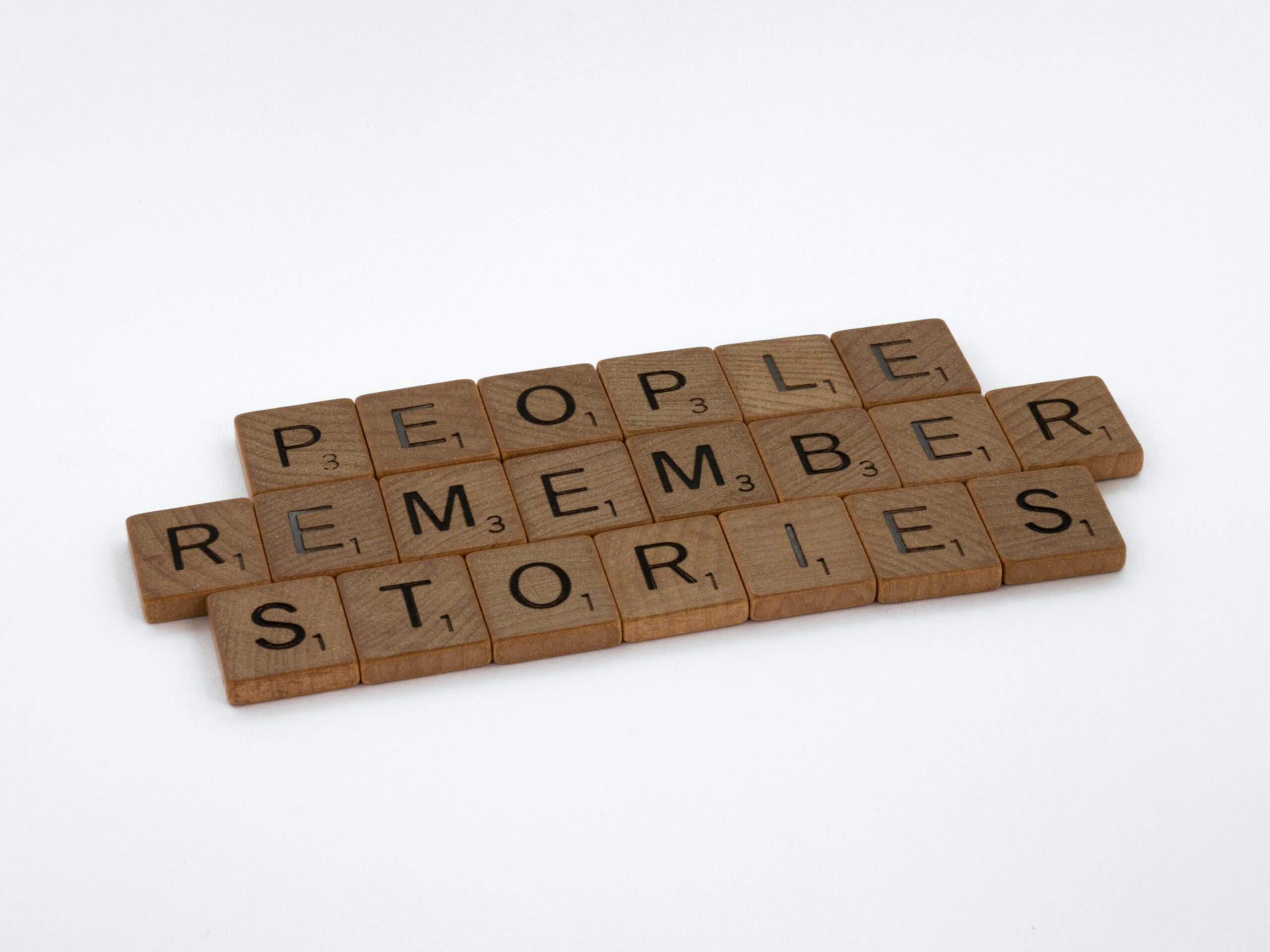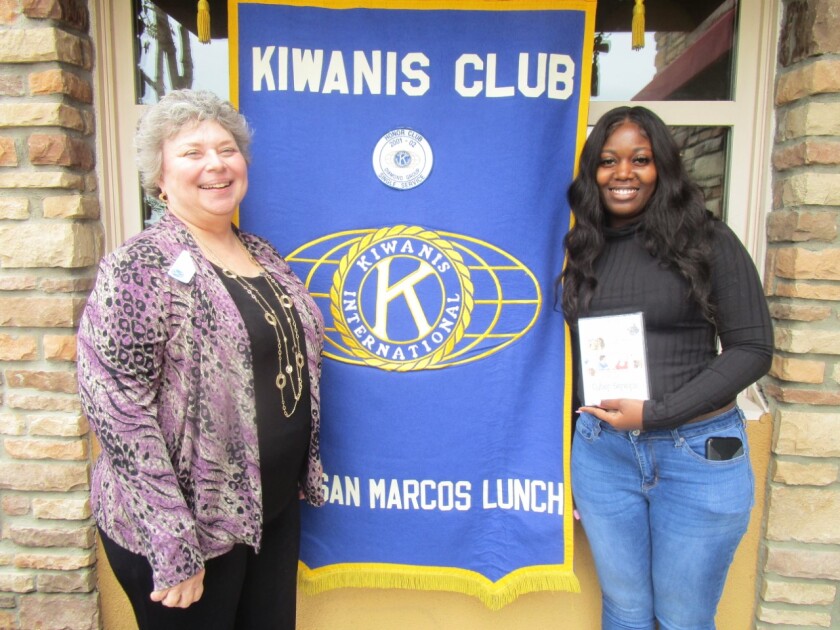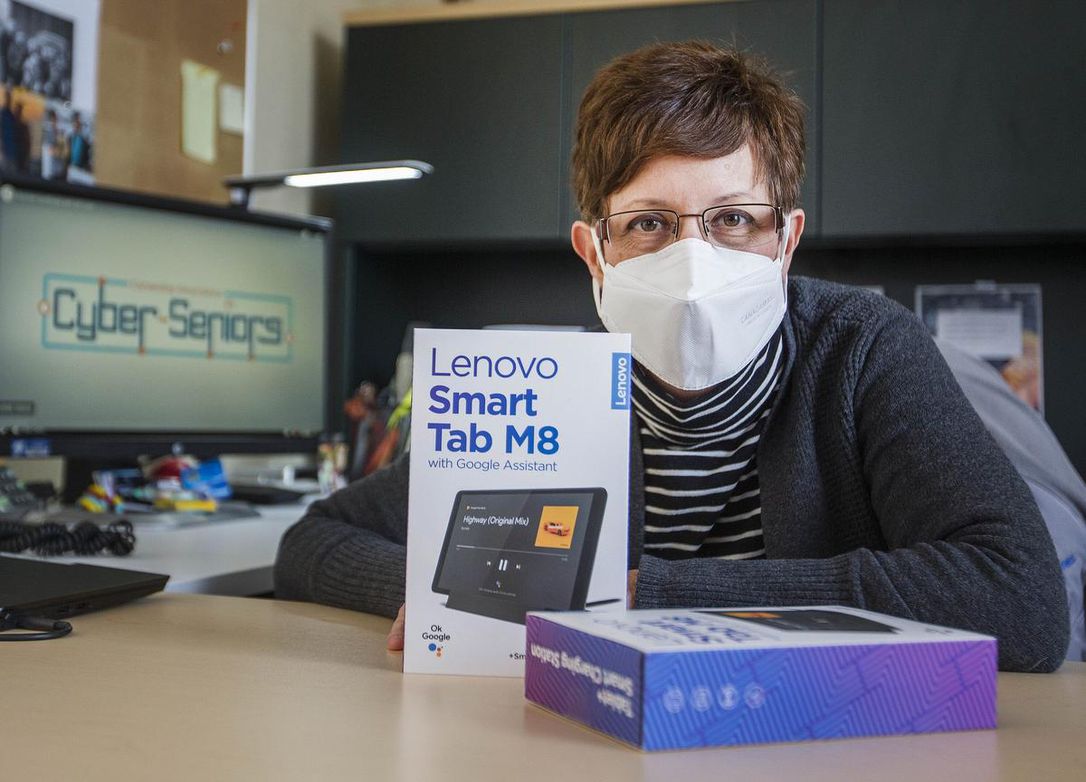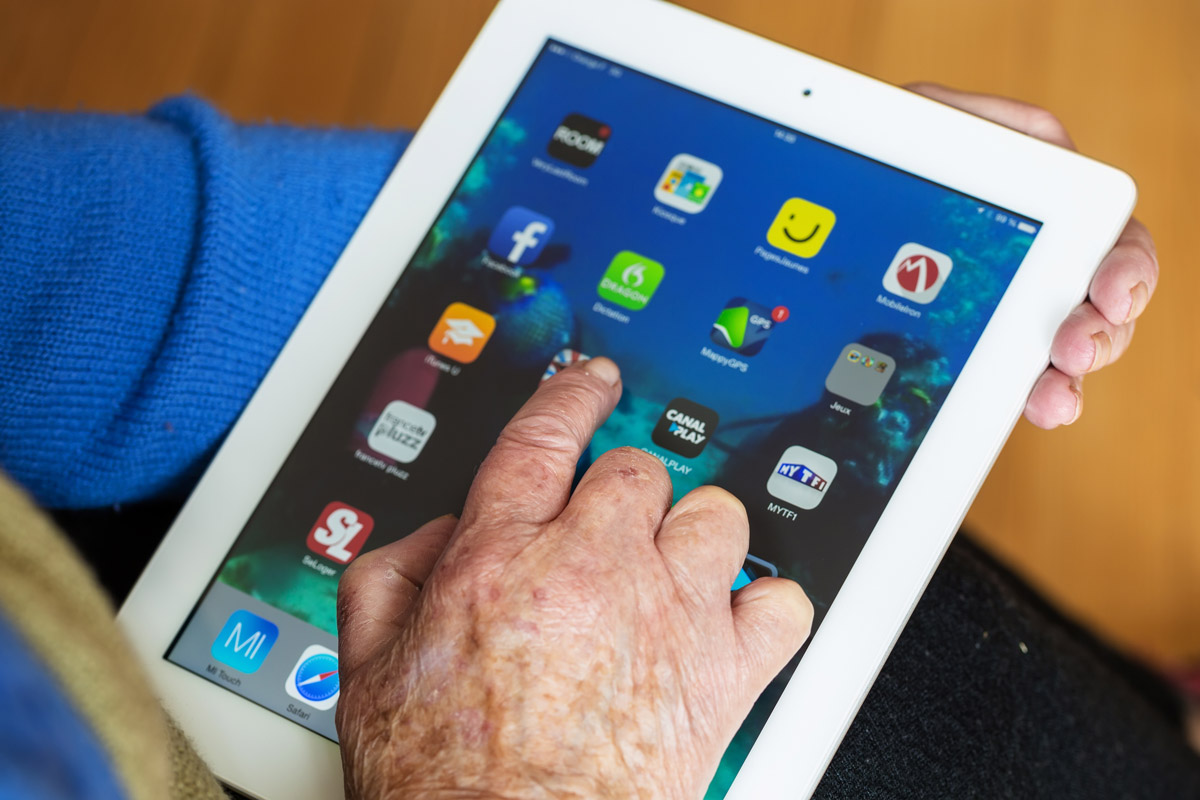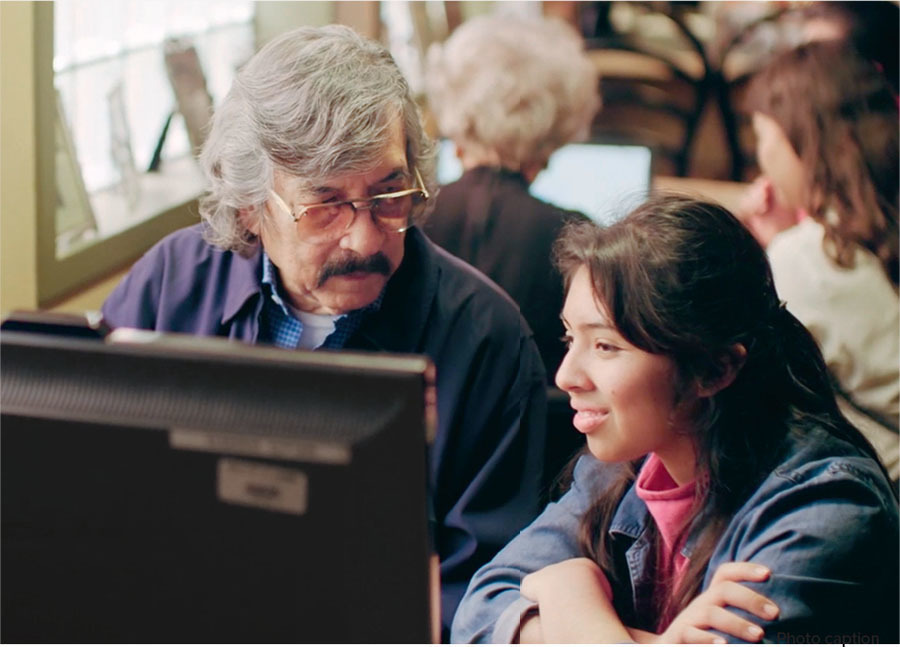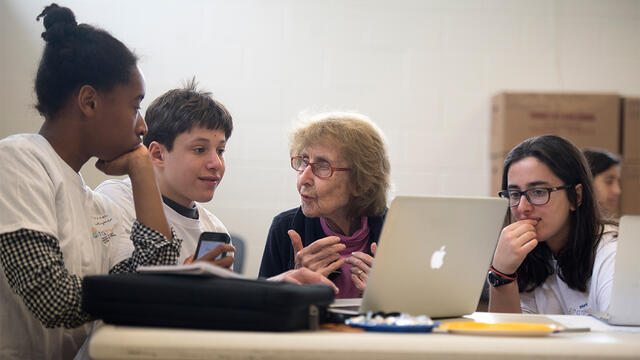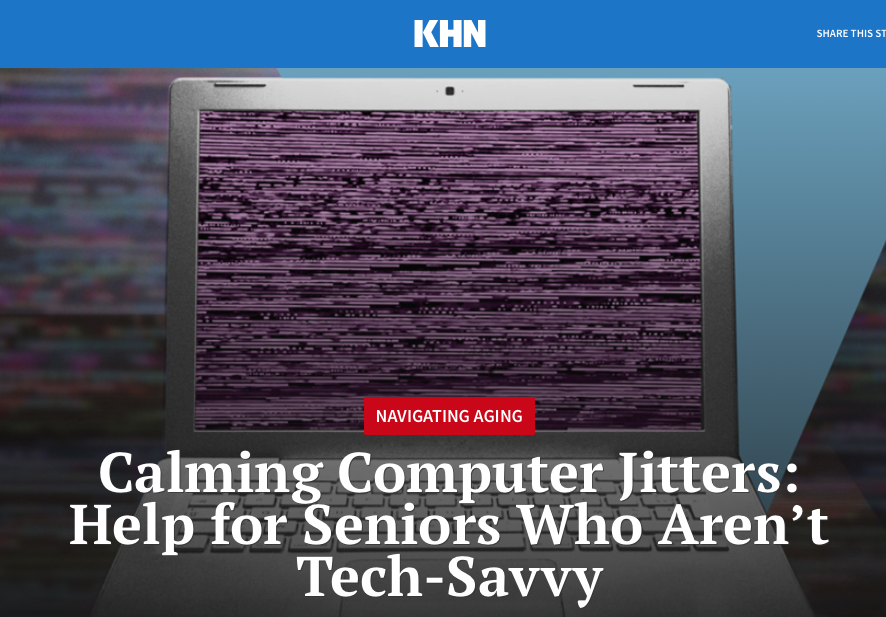Calming Computer Jitters: Help for Seniors Who Aren’t Tech-Savvy
By Judith Graham
JUNE 24, 2021
Six months ago, Cindy Sanders, 68, bought a computer so she could learn how to email and have Zoom chats with her great-grandchildren.
It’s still sitting in a box, unopened.
“I didn’t know how to set it up or how to get help,” said Sanders, who lives in Philadelphia and has been extremely careful during the coronavirus pandemic.
Like Sanders, millions of older adults are newly motivated to get online and participate in digital offerings after being shut inside, hoping to avoid the virus, for more than a year. But many need assistance and aren’t sure where to get it.
A recent survey from AARP, conducted in September and October, highlights the quandary. It found that older adults boosted technology purchases during the pandemic but more than half (54%) said they needed a better grasp of the devices they’d acquired. Nearly 4 in 10 people (37%) admitted they weren’t confident about using these technologies.
Sanders, a retired hospital operating room attendant, is among them. “Computers put the fear in me,” she told me, “but this pandemic, it’s made me realize I have to make a change and get over that.”
With a daughter’s help, Sanders plans to turn on her new computer and figure out how to use it by consulting materials from Generations on Line. Founded in 1999, the Philadelphia organization specializes in teaching older adults about digital devices and navigating the internet. Sanders recently discovered it through a local publication for seniors.
Before the pandemic, Generations on Line provided free in-person training sessions at senior centers, public housing complexes, libraries and retirement centers. When those programs shut down, it created an online curriculum for smartphones and tablets (www.generationsonline.org/apps) and new tutorials on Zoom and telehealth as well as a “family coaching kit” to help older adults with technology. All are free and available to people across the country.
Demand for Generations on Line’s services rose tenfold during the pandemic as many older adults became dangerously isolated and cut off from needed services.
Those who had digital devices and knew how to use them could do all kinds of activities online: connect with family and friends, shop for groceries, order prescriptions, take classes, participate in telehealth sessions and make appointments to get covid vaccines. Those without were often at a loss — with potentially serious consequences.
“I have never described my work as a matter of life or death before,” said Angela Siefer, executive director of the National Digital Inclusion Alliance, an advocacy group for expanding broadband access. “But that’s what happened during the pandemic, especially when it came to vaccines.”
Other organizations specializing in digital literacy for older adults are similarly seeing a surge of interest. Cyber-Seniors, which pairs older adults with high school or college students who serve as technology mentors, has trained more than 10,000 seniors since April 2020 — three times the average of the past several years. (Services are free and grants and partnerships with government agencies and nonprofit organizations supply funding, as is true for several of the organizations discussed here.)
Older adults using digital devices for the first time can call 1-844-217-3057 and be coached over the phone until they’re comfortable pursuing online training. “A lot of organizations are giving out tablets to seniors, which is fantastic, but they don’t even know the basics, and that’s where we come in,” said Brenda Rusnak, Cyber-Seniors’ managing director. One-on-one coaching is also available.
Lyla Panichas, 78, who lives in Pawtucket, Rhode Island, got an iPad three months ago from Rhode Island’s digiAGE program — one of many local technology programs for older adults that started during the pandemic. She is getting help from the University of Rhode Island’s Cyber-Seniors program, which plans to offer digital training to 200 digiAGE participants in communities hardest hit by covid-19 by the end of this year.
“The first time my tutor called me, I mean, the kids rattle things off so fast. I said, Wait a minute. You have a little old lady here. Let me keep up with you,” Panichas said. “I couldn’t keep up and I ended up crying.”
Panichas persisted, however, and when her tutor called again the next week she began “being able to grasp things.” Now, she plays games online, streams movies and has Zoom get-togethers with her son, in Arizona, and her sister, in Virginia. “It’s kind of lifted my fears of being isolated,” she told me.
OATS (Older Adults Technology Services) is set to expand the reach of its digital literacy programs significantly after a recent affiliation with AARP. It runs a national hotline for people seeking technical support, 1-920-666-1959, and operates Senior Planet technology training centers in six cities (New York; Denver; Rockville, Maryland; Plattsburgh, New York; San Antonio, Texas; and Palo Alto, California). All in-person classes converted to digital programming once the pandemic closed down much of the country.
Germaine St. John, 86, a former mayor of Laramie, Wyoming, found an online community of seniors and made dear friends after signing up with Senior Planet Colorado during the pandemic. “I have a great support system here in Laramie, but I was very cautious about going out because I was in the over-80 group,” she told me. “I don’t know what I would have done without these activities.”
Older adults anywhere in the country can take Senior Planet virtual classes for free. (A weekly schedule is available at https://seniorplanet.org/get-involved/online/.) Through its AARP partnership, OATS is offering another set of popular classes at AARP’s Virtual Community Center. Tens of thousands of older adults now participate.
Aging Connected (https://agingconnected.org/), another new OATS initiative, is focusing on bringing 1 million older adults online by the end of 2022.
An immediate priority is to educate older adults about the government’s new $32 billion Emergency Broadband Benefit for low-income individuals, which was funded by a coronavirus relief package and became available last month. That short-term program provides $50 monthly discounts on high-speed internet services and a one-time discount of up to $100 for the purchase of a computer or tablet. But the benefit isn’t automatic. People must apply to get funding.
“We are calling on anybody over the age of 50 to try the internet and learn what the value can be,” said Thomas Kamber, OATS’ executive director. Nearly 22 million seniors don’t have access to high-speed internet services, largely because these services are unaffordable or unavailable, according to a January report co-sponsored by OATS and the Humana Foundation, its Aging Connected partner.
Other new ventures are also helping older adults with technology. Candoo Tech, which launched in February 2019, works with seniors directly in 32 states as well as organizations such as libraries, senior centers and retirement centers.
For various fees, Candoo Tech provides technology training by phone or virtually, as-needed support from “tech concierges,” advice about what technology to buy and help preparing devices for out-of-the-box use.
“You can give an older adult a device, access to the internet and amazing content, but if they don’t have someone showing them what to do, it’s going to sit there unused,” said Liz Hamburg, Candoo’s president and chief executive.
GetSetUp’s model relies on older adults to teach skills to their peers in small, interactive classes. It started in February 2020 with a focus on tech training, realizing that “fear of technology” was preventing older adults from exploring “a whole world of experiences online,” said Neil Dsouza, founder and chief executive.
For older adults who’ve never used digital devices, retired teachers serve as tech counselors over the phone. “Someone can call in [1-888-559-1614] and we’ll walk them through the whole process of downloading an app, usually Zoom, and taking our classes,” Dsouza said. GetSetUp is offering about 80 hours of virtual technology instruction each week.
For more information about tech training for older adults in your area, contact your local library, senior center, department on aging or Area Agency on Aging. Also, each state has a National Assistive Technology Act training center for older adults and people with disabilities. These centers let people borrow devices and offer advice about financial assistance. Some started collecting and distributing used smartphones, tablets and computers during the pandemic.
For information about a program in your area, go to https://www.at3center.net/.
Judith Graham: khn.navigatingaging@gmail.com, @judith_graham

